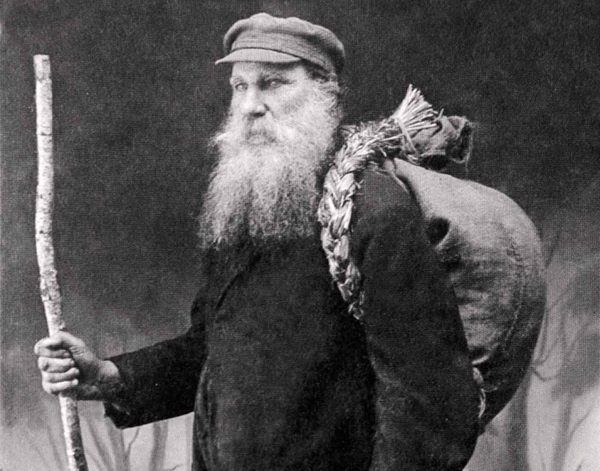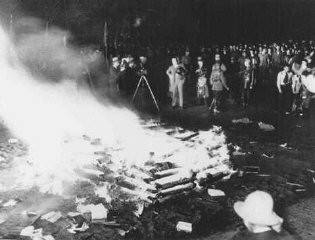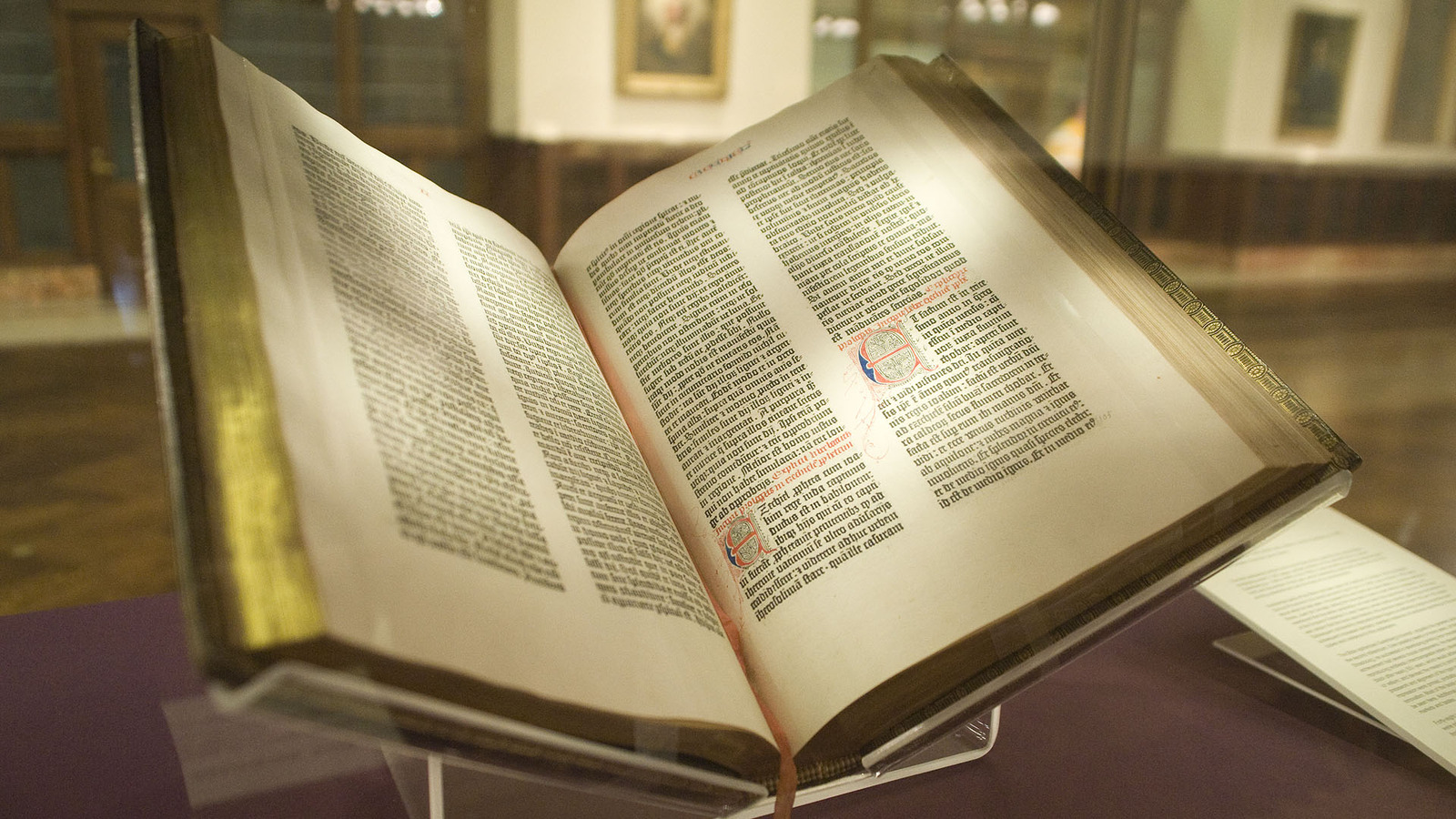Many people have been trying to stop others from reading certain things since books were first published. Books, pamphlets and posters are excellent circulators of ideas. When these ideas go against the ideals that a certain government or leader is trying to promote, it only needs one peasant in every few villages who can read for revolution to start marching closer - and finally break down the door. That's how Marxism and the revolution of 1917 gained support among factory workers in Russia!
Before that, however, the earliest examples of banning books was in the cases of the Bible and other theological writings. Sometimes governments didn't want Christianity to spread, or even exist. Other times, when the Church was powerful, the higher-up elders thought it better to keep all the Bibles in Latin so the common people couldn't read it for themselves and see what was being done wrong, usually by the leaders themselves!
This attempt to control what the people are reading is demonstrated in an extreme way in Hitler's Nazi Germany, with the confiscation and burnings of books that had content - or were written by authors - that did not support the Nazi ideology. Book burnings worked well a little further back in time, when written texts were scarce, and nearly all were limited edition! Most of the time books would be burned (along with other things) by an invading army determined to wipe out their opponents' religion - many Buddhist and Hindu texts were destroyed by both Turk and Mongol raiders, or, like in Nazi Germany, by a ruler, regime or powerful religious movement who decided they had had enough.
But, as you probably know, these methods of banning books have eventually failed or came to an end at the same time as the person who started banning them. Also, people are surprisingly ingenious when under pressure, and secret printing presses, the smuggling of books, as well as underground libraries, all became common when different books were disallowed.
Lithuanians, in the 19th century, with their country under Russian control, were at risk of losing their language as the Tsar ordered that all Lithuanian printing should be stopped and children were to be educated with Russian literature only at schools. A bishop sent money to set up a printing press in Prussia, from which the newly-printed books could be smuggled back into Lithuania. Some people organised themselves into larger book smuggling societies, and would distribute the books to their subscribers - who might have to pay for the privilege. Fair enough, as book smuggling was - and is - a dangerous business. The Lithuanians had to cross three lines of Russian security to get back to their home country and faced whipping, arrest or even death if they were found out. The movement of book smuggling led to the strengthening of Lithuanian nationalism - quite the opposite of what the Russian Tsar had intended!
In fact, most of the book smuggling that occurred was to get books into countries, not to preserve them by taking them out. The Bible has, and still is, being smuggled into many countries that are or were against Christian beliefs. Some underground churches had only one or two bibles between the whole church!
The value that these people place on their texts asks a question of the value that we place on actually having the freedom to read in the Western world. How much do we read books that challenge our own ideas? Do we not even take the time to have some ideas and beliefs of our own, instead going along with the current cultural flow?
Some of the interesting websites I found:




![Banned Books Pt. 1 - A Long [redacted] Story](/content/images/size/w600/2022/04/social.jpg)








